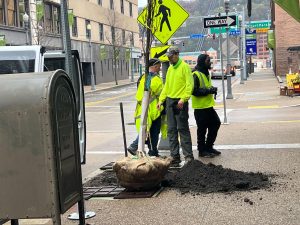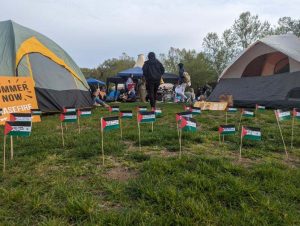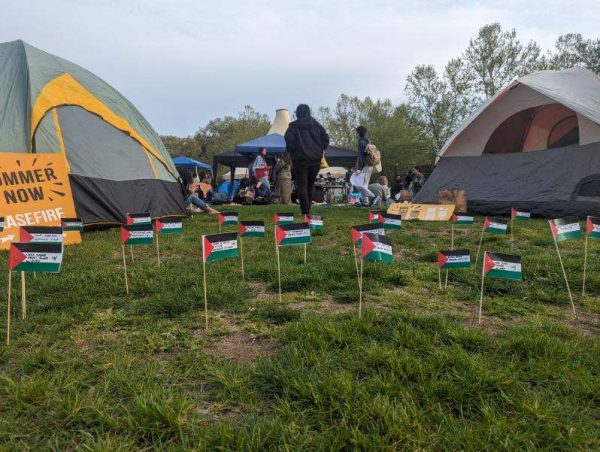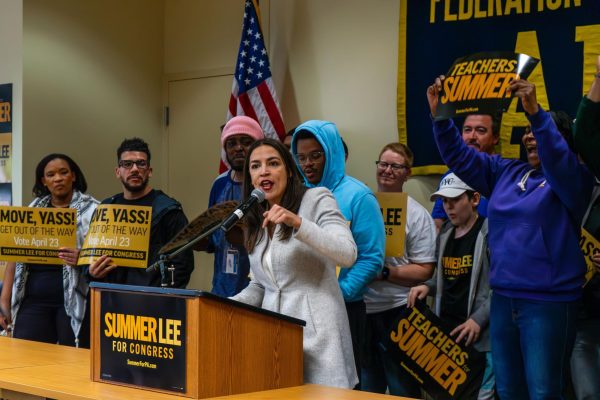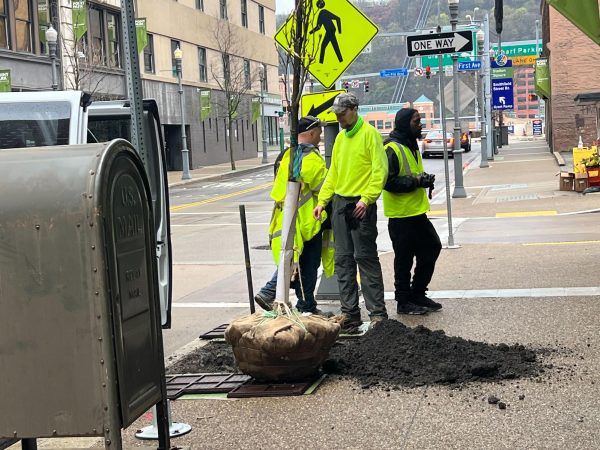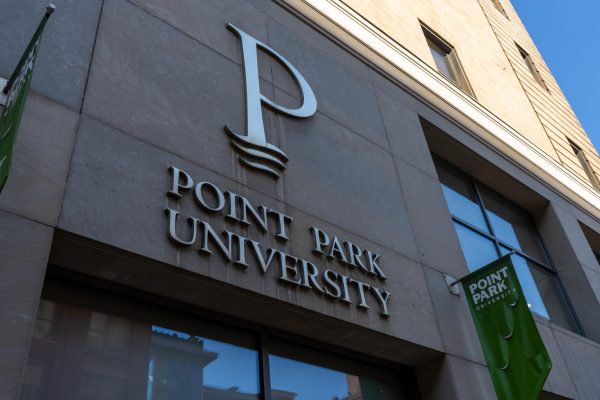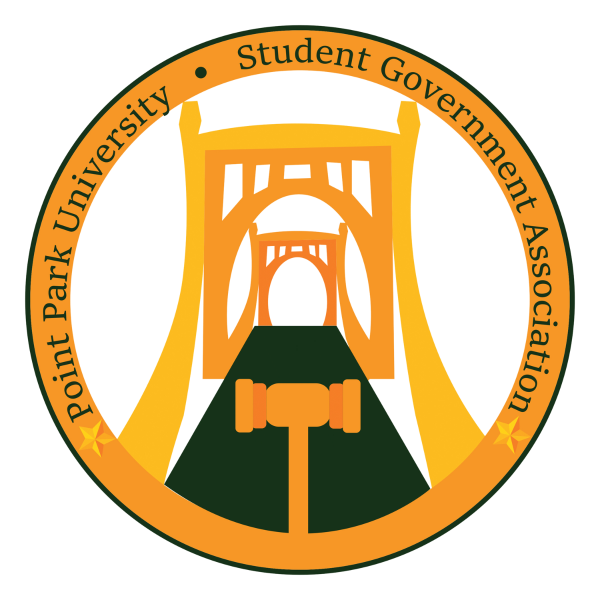Golden Quill Award winners discuss work with students
March 12, 2019
Unveiling an aspect of the opioid crisis in Pittsburgh’s Carrick neighborhood was no easy feat. Neither was constructing a five-episode podcast detailing two mysterious deaths in the Pittsburgh rivers. And nor was constructing a 14 article series on the city’s air quality or a four-minute news package revealing fire drill malpractice in the city’s schools.
But regardless of difficulty, these pieces of journalism were constructed. And the writers behind them were recognized for their hard work and for the quality of their pieces.
On Thursday, March 7, the writers of these pieces, which were all best-in-show Golden Quill award winners last year, visited the Center for Media Innovation (CMI). The presentation was titled “How they did it,” and students had the opportunity to discuss with the writers what it takes to create an award-winning piece of journalism.
The Golden Quill awards are given out by the Western PA Press Club every year, and are meant to recognize excellence in all aspects of journalism, including print, broadcast, photography and videography.
Present at the discussion on Thursday were: Steve Mellon, who wrote “Life and Death on Santron Avenue,” published by the Pittsburgh Post-Gazette and complete with interactive photo elements by Stephanie Strasburg; Julia Fraser, who along with Jeffrey Fraser and Mike Wereschagin, researched and wrote “Up in the Air,” a 14 article series published by the Pittsburgh Quarterly Magazine; Ashley Murray, who produced the five episode podcast “Three Rivers, Two Mysteries,”; and both Rick Earle and Lauren Silver, the reporter and producer (respectively), of the KDKA investigative report “School Failures: Fire Drills.”
Presenting and mediating the discussion was both Western PA Press Club president, Kimberly Palmiero and CMI graduate assistant, Stacey Federoff.
Mellon began the discussion by talking about his piece, “Life and Death on Santron Avenue,” which examines the impact of the opioid crisis in Pittsburgh by detailing the lives of Carrick residents who live on Santron Avenue. Mellon detailed the process of communicating with and developing relationships with the individuals featured in his piece, specifically Glenn Jeffries of Carrick.
Mellon, while acknowledging that the story does not have a happy ending, also discussed the triumphs in constructing the piece.
“This to me is the type of journalism that I feel driven to do,” Mellon said. “The reason I’m still doing this at 59 years old, despite the chaos of the industry and the declining paychecks, is because of this type of thing.”
Julia Fraser discussed her piece, “Up in the Air,” next. Julia Fraser, along with her co-writers, Jeffery Fraser and Wereschagin, spent about six months conducting over 50 interviews, looking at several dozen studies and constructing the piece. “Up in the Air” focuses on Pittsburgh’s air quality in the past and the present, as well as what the future may hold.
“The biggest challenges are just the sheer volume of data and lawsuits,” Julia Fraser said. “It takes a long time.”
Julia Fraser also said that research in itself presented difficulties to the team.
“The other challenges are things like proving a causal link,” Julia Fraser said. “That is really difficult, but there is some good research out there. It’s just important to report what is out there, but also to note what is unknown.”
Julia Fraser also gave some advice to the students.
“Just talk to people,” Julia Fraser said. “I think that is the biggest thing […] don’t be hesitant to reach back out to a source for additional questions.”
Silver and Earle then discussed their broadcast piece “School Failures: Fire Drills,” also including the amount of research they conducted. According to Silver and Earle, the piece took four to five months to construct, and began with Silver filing a Right to Know request for public school fire drill records in the city. According to Silver, the data was suspicious.
“It was dates and times, that’s it,” Silver said. “I knew something was wrong because they just listed evacuation times, and some were like 38 seconds.”
Upon further investigation, Silver was able to uncover when the fire drills were being held.
“They were doing fire drills on Christmas Eve, Thanksgiving, 2 am on a Saturday,” Silver said. “I don’t think kids are in school then.”
Silver and Earle then discussed the process of obtaining sources for the story, which included the superintendent of the Washington School District, the chief of school performance for the Pittsburgh Public Schools and the state’s auditor general. They discussed specifically the difficulty in obtaining sources who will appear on camera.
“It took awhile for them to sit down and go on camera with us,” Earle said. “Usually they just issue a statement. But we need someone on camera.”
The discussion then shifted to Murray’s podcast, “Three Rivers, Two Mysteries.” The podcast, which is available in five episodes with several live bonus episodes and a written piece, discusses the mysterious disappearances and deaths of Pittsburgh residents Paul Kochu and Dakota James. The podcasts feature both the families of the victims, as well as the Pittsburgh Police who investigated the disappearances. The project, altogether, took nine months to complete, with Murray citing the audio recording and editing elements as taking up most of the time.
“It was a ton of work, but definitely rewarding,” Murray said. “We got the voices of those families out.”
Murray also cited the project’s emotional aspects as being tough to overcome. However, the project has been well-received, and combined with another one of Murray’s podcasts, has exceeded 200,000 downloads.
The presentation ended with a question and answer session for students.
The entries for this year’s awards are currently being judged. The 55th Golden Quill awards will be held on Wednesday, May 29, at the Rivers Casino.





